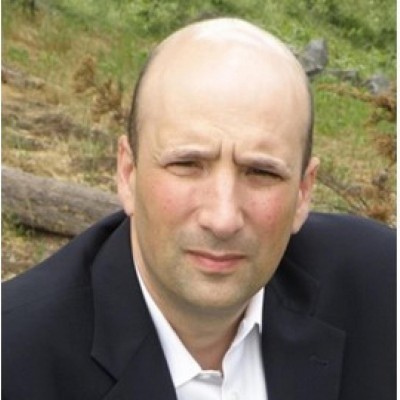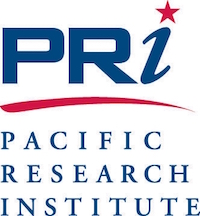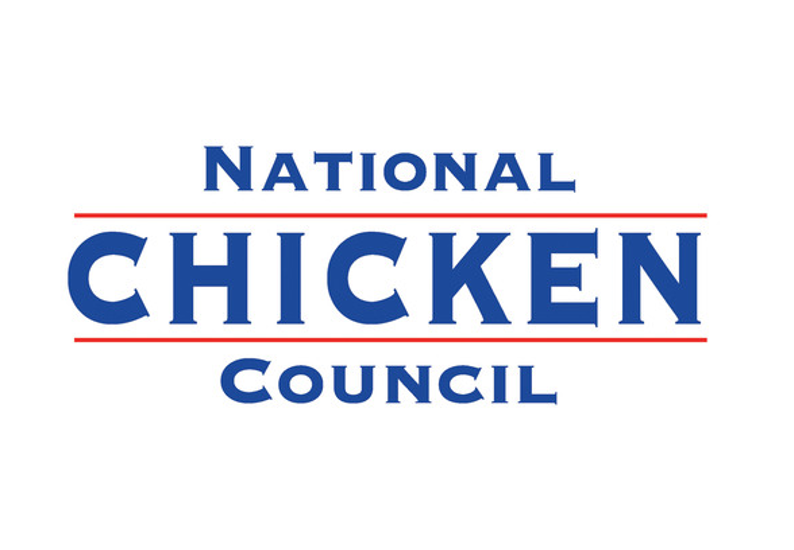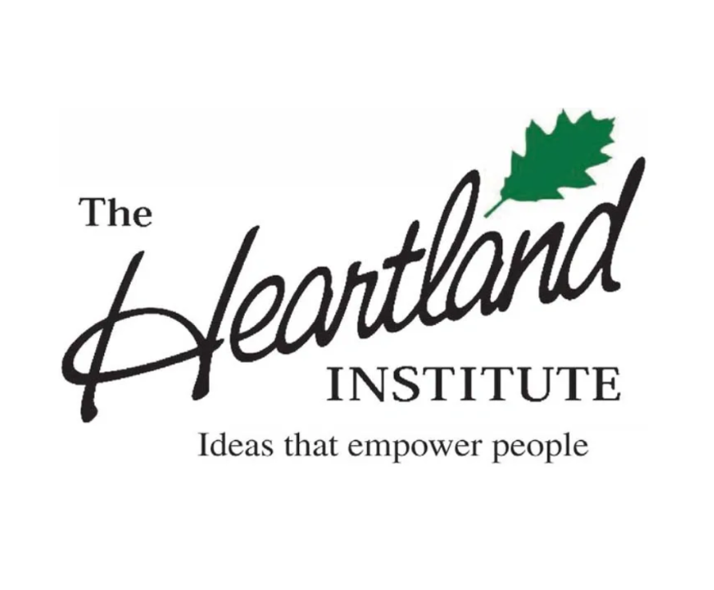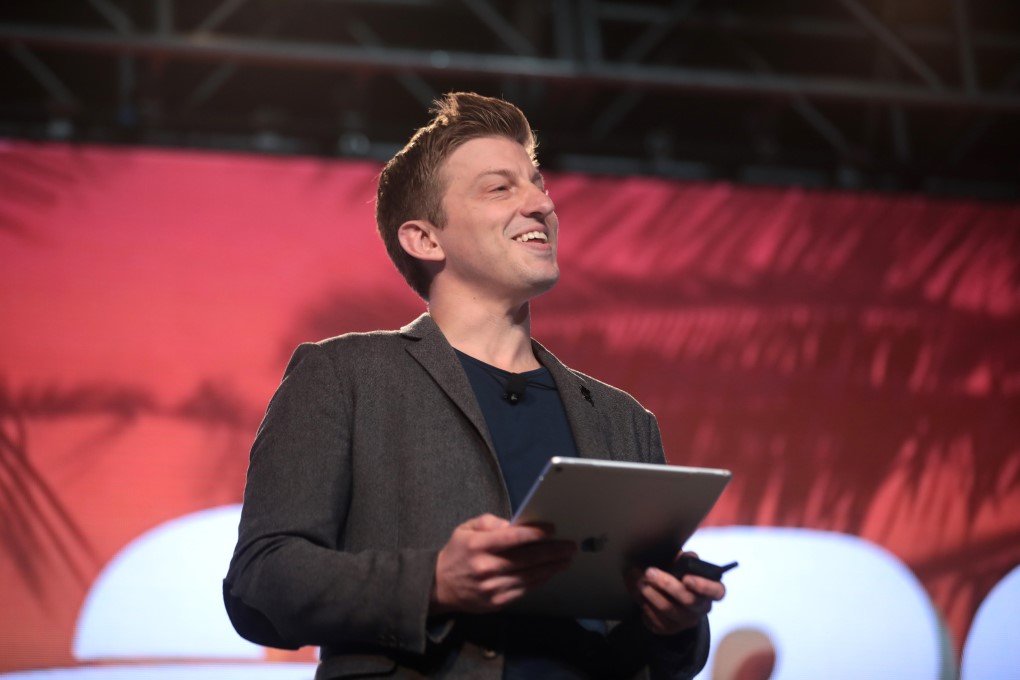Wayne Winegarden
Credentials
- B.A., M.A., & Ph.D., Economics, George Mason University (1990-1995)1“Wayne Winegarden,” Pacific Research Institute. Archived March 7, 2019. Archive.fo URL: https://archive.fo/tp7It 2“Wayne Winegarden,” LinkedIn. Archived March 6, 2019. Archived .pdf on file at DeSmog.
Background
Wayne Winegarden is an economist who advises corporations, government officials, and organizations on energy and healthcare policy matters. He is a Senior Fellow in Business & Economics at the Pacific Research Institute (PRI),3“Wayne Winegarden,” Pacific Research Institute. Archived March 7, 2019. Archive.fo URL: https://archive.fo/tp7It a principal at Capitol Economic Advisors, and a contributing editor for EconoStats, a project of George Mason University hosted by Forbes.com. He was previously employed by Philip Morris.4“Wayne Winegarden,” LinkedIn. Archived March 6, 2019. Archived .pdf on file at DeSmog. 5“Wayne Winegarden,” Forbes.com. Archived March 7, 2019. Archive.is URL: http://archive.is/qO0Ya
Winegarden’s commentaries and reports are often published by the Wall Street Journal, the Chicago Tribune, American Spectator, Investor’s Business Daily, Forbes.com, TownHall.com, and the Heartland Institute.6“Wayne Winegarden,” Pacific Research Institute. Archived March 7, 2019. Archive.fo URL: https://archive.fo/tp7It 7“Wayne Winegarden,” LinkedIn. Archived March 6, 2019. Archived .pdf on file at DeSmog.
Winegarden & Tobacco
Documents obtained through litigation and archived by the University of California, San Francisco (collectively known as the Truth Tobacco Industry Documents) reveal that, during his time employed by Philip Morris, Winegarden was actively engaged in assessing the economic and use impacts of tobacco taxation, as well as the development of talking points to be presented in opposition to proposed excise tax increases.
In the case of the state of Oklahoma, Winegarden received a 1998 study commissioned by Philip Morris which concluded that, as a result of increased excise taxes on tobacco, state revenues would likely increase while tobacco use declined, but warned of ‘boot-legging’ and a shift in sales from state retailers to Indian ‘smoke shops’ with different tax regulations.8“Estimated State Revenue And Economic Impacts Of A Proposed Cigarette Tax Increase In Oklahoma (Bates #: 2081846581-2081846599),” IndustryDocuments.UCSF.edu, March 26, 1998. Archive.is URL: http://archive.fo/z68Zo
In 1999, Winegarden authored numerous reports for Philip Morris claiming that excise taxes on cigarettes were highly regressive and unfairly punitive for low-income consumers.9“Unknown (Bates #: 2071825190-2071825202),” IndustryDocuments.UCSF.edu, June 11, 1999. Archive.is URL: http://archive.fo/CmIhv
The same year, inter-office correspondence notes that Winegarden and colleagues discussed the use of talking points to counter proposed cigarette tax increases aimed at reducing consumption among youth. The same memo revealed Winegarden’s coordination with ALEC in developing a presentation on the cross-border effects of tobacco taxation.10“Weekly Activity Report For Issues Management – 000409 Through 000415 (Bates #: 2082659306-2082659316),” IndustryDocuments.UCSF.edu, April 15, 1999. Archive.is URL: http://archive.fo/9abX5
In January of 2000, Winegarden and many of his Philip Morris colleagues received via email the summary of a University of Pittsburgh study that concluded that women were more likely to develop lung cancer from smoking due to certain genetic factors.11“Fw: Study Finds Biological Reason For Women’s Increased Risk Of Lung Cancer (Bates #: 2083345930A-2083345931),” IndustryDocuments.UCSF.edu, January 4, 2000. Archive.is URL: http://archive.is/WvL18
Stance on Climate Change
March 28, 2017
“When we’re talking about the cost of climate change and how do we address that, we want to have a lot of experiments going on. We want to empower the economy and empower people to come up with these solutions. Not direct them from Washington DC.”12“Trump Targets Obama Era Climate Change Regulations,” WNYC.org, March 28, 2017. Archived April 3, 2017. Archived transcript on file at DeSmog.
Key Quotes
May 03, 2008
In an editorial for TownHall.com titled “Need Growth, Think Global Warming?” Winegarden criticized cap and trade proposals as an artificial mechanism to subsidize solar power:
“solar energy is currently an inferior product compared to coal energy. Because of the economic inferiority of solar energy, cap and trade legislation is necessary to “handicap” coal energy in order to make solar energy viable in the competitive marketplace. Handicapping our use of coal energy, or the many other efficient technologies that would be impacted by cap and trade legislation, creates the very economic impact the environmentalists are claiming does not exist.”13Wayne Winegarden. “Need Growth, Think Global Warming?”, TownHall.com, May 3, 2008. Archived March 7, 2019. Archive.is URL: http://archive.is/6EbKr
March 10, 2007
Referring to climate change as a “scam,” Winegarden claimed that government regulations and incentives designed to reduce carbon emissions and transition to renewable energy sources were subverting the free market energy economy:
“The global warming scam has nothing to do with the science behind global warming. It has everything to do with the economics. Oil, coal, or any other energy source is an economic good that is no different than any other product or service. Issues of supply and demand dictate the quantity and price of current energy sources as well as the incentive for suppliers to create viable energy alternatives.”14Wayne Winegarden. “CSR and Global Warming Economics,” TownHall.com, March 10, 2007. Archived March 7, 2019. Archive.is URL: http://archive.fo/Rhebi
He went on to minimize any efforts by the U.S. to reduce carbon emissions because of unchecked emissions from other nations, and concluded that emissions controls would result not only in economic damages, but also in environmental impacts the policies were meant to address:
“Even if the U.S. implemented a carbon cap, worldwide carbon emissions may not be reduced; instead, the likely outcome is that carbon emissions will be simply redistributed from the U.S. to places like China and India. The economic costs borne by U.S. residents will consequently be borne in vain as there would be no net positive impact on the environment from the carbon cap policy. In fact, to the extent that the industrialized countries use cleaner technologies, the regulations could actually have a net negative impact on the environment.”15Wayne Winegarden. “CSR and Global Warming Economics,” TownHall.com, March 10, 2007. Archived March 7, 2019. Archive.is URL: http://archive.fo/Rhebi
Key Actions
February 2022
Wayne Winegarden wrote a Pacific Research Institute report titled “Zapped! How California’s Punishing Energy Agenda Hurts the Working Class” (PDF).16“Zapped! How California’s Punishing Energy Agenda Hurts the Working Class” (PDF), Pacific Research Institute, February 2022. Archived .pdf on file at DeSmog.
“The substantial financial benefits that low-income and middle-class families could realize from cheaper electricity provides evidence that policymakers should choose energy affordability rather than energy poverty,” Winegarden concluded. He added, “repealing these costly mandates, taxes, and regulations that artificially drive up the costs of traditional energy sources will help lessen the state’s unaffordable energy environment.”
Winegarden’s report was cited in the Northern California Record, where he commented “Policymakers should be alarmed at the large energy burdens and high rates of energy poverty. Instead of relying on untested and expensive energy sources, we should be alleviating these burdens.”17Sarah Downey. “New report details impact of rising electricity rates on California families,” Northern California Record, February 8, 2022. Archived February 8, 2022. Archive URL: https://archive.ph/LAQE3
He also opposed fracking bans in California:
“Banning fracking in California, which would be one of the safest and cleanest operations globally, denies natural gas supplies to the world that could lower natural gas prices. Lower natural gas prices would encourage greater use of natural gas and have positive impacts on emissions (from a global perspective). Though this process is more ‘unseen.’ it shows how California’s own global warming policies unintentionally undermine its own goals.”
“Renewable mandates force electricity to be generated by sources that cost more. Cap and trade policies directly impose a tax on electricity use.
“Eliminating these taxes and mandates removes the costs, which will directly benefit families by lowering their electricity costs,” he claimed.
December 5, 2018
The Pacific Research Institute (P.R.I.) issued a report authored by Winegarden claiming to prove that government policies aimed at reducing carbon emissions negatively impact working class and minority communities the most while failing to reduce emissions.18Wayne Winegarden. “New Study Shows California/New York Approach to Fighting Global Warming Hurts Working Class and Minority Communities,” Pacific Research Institute, December 5, 2018. Archived December 12, 2018. Archive.is URL: http://archive.is/ARMaY. Archived .pdf of the report on file at DeSmog.
Drawing a correlation between electricity prices and poverty statistics in New York and California, the report concluded government regulation of the energy sector that incentivizes the adoption of renewables fails to address the stated goals of climate change mitigation and hurts the most vulnerable.19Wayne Winegarden. “New Study Shows California/New York Approach to Fighting Global Warming Hurts Working Class and Minority Communities,” Pacific Research Institute, December 5, 2018. Archived December 12, 2018. Archive.is URL: http://archive.is/ARMaY. Archived .pdf of the report on file at DeSmog.
Winegarden summed up the report’s findings by suggesting a hands-off approach by government:
“These big government policies haven’t been shown to be more effective in reducing emissions. Ohio and West Virginia show that you don’t have to impose new taxes, create big government programs, or increase energy burdens to cut emissions. Policymakers in Sacramento and Albany should learn from these states and embrace market-based policies.”20Wayne Winegarden. “New Study Shows California/New York Approach to Fighting Global Warming Hurts Working Class and Minority Communities,” Pacific Research Institute, December 5, 2018. Archived December 12, 2018. Archive.is URL: http://archive.is/ARMaY. Archived .pdf of the report on file at DeSmog.
September 17, 2018
Acknowledging that “the majority of Americans consider global warming a threat, and they are concerned about it,” Winegarden criticized any government policy or regulation that incentivizes the purchase of electric vehicles, claiming that their benefits are vastly overstated and that they do not alleviate the effects of climate change.21Wayne Winegarden. “CAFE Standards versus Public Opinion,” Forbes, September 17, 2018. Archived February 13, 2019. Archive.is URL: http://archive.is/ij9eX
Taking aim at the CAFE (Corporate Average Fuel Economy) regulations for automobiles, Winegarden praised the EPA’s proposal to freeze the CAFE standard for 2020 at only 37 mpg. The previous standard pointed towards an average fuel efficiency standard of approximately 54.5 mpg by 2025.22Wayne Winegarden. “CAFE Standards versus Public Opinion,” Forbes, September 17, 2018. Archived February 13, 2019. Archive.is URL: http://archive.is/ij9eX
Winegarden suggested that consumers alone, operating under the principles of the free market, could compel innovation in fuel efficiency standards if only they were freed from government regulations and incentives:
“A vast majority of Americans are worried about global warming and they will beat a path to the door of the manufacturers who create affordable, low emission, high functioning, vehicles. Government mandates, like CAFE standards, disregard consumer’s revealed desires and, in their stead, impose the will of government mandarins. The better policy would incentivize innovation without ignoring the needs of millions of families.”23Wayne Winegarden. “CAFE Standards versus Public Opinion,” Forbes, September 17, 2018. Archived February 13, 2019. Archive.is URL: http://archive.is/ij9eX
February 23, 2018
The Pacific Research Institute released a report by Winegarden describing federal and state tax credits, loans, and manufacturer subsidies to incent the purchase of electric vehicles as anti-competitive and not beneficial to the average consumer or the environment. The report claimed that “over 99 percent of the total tax credits went to households with an AGI above $50,000”:24Wayne Winegarden. “Costly Subsidies for the Rich: Quantifying the Subsidies Offered to Battery Electric Powered Cars,” Pacific Research Institute, February 23, 2018. Archived February 11, 2019. Archive.is URL: http://archive.is/v3Xh9. Archived .pdf on file at DeSmog.
“Consequently, the subsidization of EVs has some reverse Robin Hood impacts where tax dollars are taken from all households (including lower-income households) and given to wealthier households.”25Wayne Winegarden. “Costly Subsidies for the Rich: Quantifying the Subsidies Offered to Battery Electric Powered Cars,” Pacific Research Institute, February 23, 2018. Archived February 11, 2019. Archive.is URL: http://archive.is/v3Xh9. Archived .pdf on file at DeSmog.
A new report by the International Council for Clean Transportation, however, revealed that the cost of owning and operating electric vehicles in five European countries has dropped below that of their petroleum-fueled counterparts, partly due to the fact that electricity is, in many cases, more affordable than gas and diesel.26Damian Carrington. “Electric cars are already cheaper to own and run, says study,” The Guardian, February 12, 2019. Archived February 12, 2019. Archive.is URL: http://archive.is/wGiHk
The report also noted the environmental and health benefits of the transition to electric vehicles, where 500,000 early deaths are attributed to air pollution every year in the EU.27Damian Carrington. “Electric cars are already cheaper to own and run, says study,” The Guardian, February 12, 2019. Archived February 12, 2019. Archive.is URL: http://archive.is/wGiHk
An ICCT representative also noted that EV subsidies and incentives would eventually become unnecessary:
“financial incentives for electric cars would not be needed when purchase prices fall to that of fossil-fuel powered cars, which is likely between 2025 and 2030.”
November 1, 2016
The Pacific Research Institute published a report authored by Winegarden criticizing President Obama’s Clean Power Plan. PRI‘s report was promoted by The Heartland Institute, which summarized the report as follows:
“Under President Obama’s Clean Power Plan, the poorest households could see their electricity costs rise by more than 10 percent of their income.”28“The Clean Power Plan’s Economic Impact by Income Group and Local Area,” Heartland Institute, November 1, 2016. Archived November 3, 2016. Archive.is URL: https://archive.is/Cp5Ce
Winegarden, a PRI Senior Fellow, wrote:
“Poor communities will be hit hard by the Clean Power Plan. Working-class neighborhoods across the nation could see rising power costs if the Obama Administration’s plan is implemented. I hope that America’s next President will review our findings very carefully when charting our country’s energy future, and pursue free-market policies that will alleviate the problem of energy poverty.”29“The Clean Power Plan’s Economic Impact by Income Group and Local Area,” Heartland Institute, November 1, 2016. Archived November 3, 2016. Archive.is URL: https://archive.is/Cp5Ce
View the full report here (.pdf).
May 12, 2016
Winegarden authored a Pacific Research Institute anti-regulation study titled “Regulating the Upstream Energy Industry: Getting the Balance Right.” The report warned that regulation of the energy sector for the purpose of addressing climate change would cause grave harm to the economy:30Wayne Winegarden. ”Regulating the upstream energy industry: Getting the balance right,” Pacific Research Institute, May 12, 2016. Archived June 24, 2016. Archive.is URL: https://archive.is/eGvAK
“The energy industry is crucial to the American economy. Unfortunately, many states are crippling energy production – and the economic benefits it brings – with heavy-handed regulations.”31Wayne Winegarden. ”Regulating the upstream energy industry: Getting the balance right,” Pacific Research Institute, May 12, 2016. Archived June 24, 2016. Archive.is URL: https://archive.is/eGvAK
The full study (PDF) describes the ban on fracking in New York as “unnecessary,” and suggests that more “sensible regulations” are those that “[embrace] modern drilling techniques.”32Wayne Winegarden. ”Regulating the upstream energy industry: Getting the balance right,” Pacific Research Institute, May 12, 2016. Archived June 24, 2016. Archive.is URL: https://archive.is/eGvAK
April 22, 2016
Winegarden wrote for Forbes that:
“Oil and natural gas regulations on federal lands, and many state lands, are excessive.”33Wayne Winegarden. “Getting The Energy Regulatory Balance Right,” Forbes, April 22, 2016. Archived .pdf on file at DeSmog. https://archive.is/DhaZp
Winegarden referred to a forthcoming Pacific Research Institute report which he claimed:
“documents the consistency of these negative impacts across areas with overly-burdensome regulations on oil and natural gas production.”34Wayne Winegarden. “Getting The Energy Regulatory Balance Right,” Forbes, April 22, 2016. Archived .pdf on file at DeSmog. https://archive.is/DhaZp
He further claimed that the economic harms of regulating the energy sector would lead to worse environmental outcomes:
“When regulatory authorities impose overly-burdensome costs, or unnecessarily ban modern drilling techniques [like fracking], the economic contribution from the upstream energy industry is diminished. The costs from diminished economic growth are many and, ironically, can include worst environmental stewardship. The lesson for policy is clear: It is imperative that regulators get the balance right.”35Wayne Winegarden. “Getting The Energy Regulatory Balance Right,” Forbes, April 22, 2016. Archived .pdf on file at DeSmog. https://archive.is/DhaZp
Affiliations
- Pacific Research Institute — Senior fellow, business & economics.36“Wayne Winegarden,” Pacific Research Institute. Archived March 7, 2019. Archive.fo URL: https://archive.fo/tp7It
- Marymount University — Lecturer, economics faculty.37“Wayne Winegarden,” TownHall.com. Archived March 7, 2019. Archive.is URL: http://archive.fo/J1MuM
- EconoSTATS — Contributing editor.38“Wayne Winegarden,” Pacific Research Institute. Archived March 7, 2019. Archive.fo URL: https://archive.fo/tp7It
- Capitol Economic Advisors — Partner (2001-present).39“Wayne Winegarden,” LinkedIn. Archived March 6, 2019. Archived .pdf on file at DeSmog.
- Arduin, Laffer & Moore Econometrics — Partner.“40Wayne Winegarden,” TownHall.com. Archived March 7, 2019. Archive.is URL: http://archive.fo/J1MuM
- Freeenterpriser.com — Contributor.41“Wayne Winegarden,” TownHall.com. Archived March 7, 2019. Archive.is URL: http://archive.fo/J1MuM
- Mercatus Center — PhD fellow.42“Wayne Winegarden,” Mercatus.org. Archived March 7, 2019. Archive.is URL: http://archive.fo/YT0fK
- Philip Morris Asia — Manager, tax & economic issues (1999-2001).43“Wayne Winegarden,” LinkedIn. Archived March 6, 2019. Archived .pdf on file at DeSmog.
- Philip Morris Management Corporation — Manager, state fiscal issues (1996-1999).44“Wayne Winegarden,” LinkedIn. Archived March 6, 2019. Archived .pdf on file at DeSmog.
- National Association of Federal Credit Unions — Economist (1995-1996).45“Wayne Winegarden,” LinkedIn. Archived March 6, 2019. Archived .pdf on file at DeSmog.
Social Media
- @WayneWinegarden on Twitter
- Wayne Winegarden on Facebook
- Wayne Winegarden on LinkedIn
Publications
Winegarden has published a number of reports for the Pacific Research Institute, many of which are promoted by the Heartland Institute, Forbes.com, and the Wall Street Journal.
Other Resources
- “Pacific Research Institute,” PolluterWatch.org.
- “Wayne Winegarden’s research while affiliated with Pacific Northwest Research Institute and other places,” ResearchGate.net.
Resources
- 1“Wayne Winegarden,” Pacific Research Institute. Archived March 7, 2019. Archive.fo URL: https://archive.fo/tp7It
- 2“Wayne Winegarden,” LinkedIn. Archived March 6, 2019. Archived .pdf on file at DeSmog.
- 3“Wayne Winegarden,” Pacific Research Institute. Archived March 7, 2019. Archive.fo URL: https://archive.fo/tp7It
- 4“Wayne Winegarden,” LinkedIn. Archived March 6, 2019. Archived .pdf on file at DeSmog.
- 5“Wayne Winegarden,” Forbes.com. Archived March 7, 2019. Archive.is URL: http://archive.is/qO0Ya
- 6“Wayne Winegarden,” Pacific Research Institute. Archived March 7, 2019. Archive.fo URL: https://archive.fo/tp7It
- 7“Wayne Winegarden,” LinkedIn. Archived March 6, 2019. Archived .pdf on file at DeSmog.
- 8“Estimated State Revenue And Economic Impacts Of A Proposed Cigarette Tax Increase In Oklahoma (Bates #: 2081846581-2081846599),” IndustryDocuments.UCSF.edu, March 26, 1998. Archive.is URL: http://archive.fo/z68Zo
- 9“Unknown (Bates #: 2071825190-2071825202),” IndustryDocuments.UCSF.edu, June 11, 1999. Archive.is URL: http://archive.fo/CmIhv
- 10“Weekly Activity Report For Issues Management – 000409 Through 000415 (Bates #: 2082659306-2082659316),” IndustryDocuments.UCSF.edu, April 15, 1999. Archive.is URL: http://archive.fo/9abX5
- 11“Fw: Study Finds Biological Reason For Women’s Increased Risk Of Lung Cancer (Bates #: 2083345930A-2083345931),” IndustryDocuments.UCSF.edu, January 4, 2000. Archive.is URL: http://archive.is/WvL18
- 12“Trump Targets Obama Era Climate Change Regulations,” WNYC.org, March 28, 2017. Archived April 3, 2017. Archived transcript on file at DeSmog.
- 13Wayne Winegarden. “Need Growth, Think Global Warming?”, TownHall.com, May 3, 2008. Archived March 7, 2019. Archive.is URL: http://archive.is/6EbKr
- 14Wayne Winegarden. “CSR and Global Warming Economics,” TownHall.com, March 10, 2007. Archived March 7, 2019. Archive.is URL: http://archive.fo/Rhebi
- 15Wayne Winegarden. “CSR and Global Warming Economics,” TownHall.com, March 10, 2007. Archived March 7, 2019. Archive.is URL: http://archive.fo/Rhebi
- 16“Zapped! How California’s Punishing Energy Agenda Hurts the Working Class” (PDF), Pacific Research Institute, February 2022. Archived .pdf on file at DeSmog.
- 17Sarah Downey. “New report details impact of rising electricity rates on California families,” Northern California Record, February 8, 2022. Archived February 8, 2022. Archive URL: https://archive.ph/LAQE3
- 18Wayne Winegarden. “New Study Shows California/New York Approach to Fighting Global Warming Hurts Working Class and Minority Communities,” Pacific Research Institute, December 5, 2018. Archived December 12, 2018. Archive.is URL: http://archive.is/ARMaY. Archived .pdf of the report on file at DeSmog.
- 19Wayne Winegarden. “New Study Shows California/New York Approach to Fighting Global Warming Hurts Working Class and Minority Communities,” Pacific Research Institute, December 5, 2018. Archived December 12, 2018. Archive.is URL: http://archive.is/ARMaY. Archived .pdf of the report on file at DeSmog.
- 20Wayne Winegarden. “New Study Shows California/New York Approach to Fighting Global Warming Hurts Working Class and Minority Communities,” Pacific Research Institute, December 5, 2018. Archived December 12, 2018. Archive.is URL: http://archive.is/ARMaY. Archived .pdf of the report on file at DeSmog.
- 21Wayne Winegarden. “CAFE Standards versus Public Opinion,” Forbes, September 17, 2018. Archived February 13, 2019. Archive.is URL: http://archive.is/ij9eX
- 22Wayne Winegarden. “CAFE Standards versus Public Opinion,” Forbes, September 17, 2018. Archived February 13, 2019. Archive.is URL: http://archive.is/ij9eX
- 23Wayne Winegarden. “CAFE Standards versus Public Opinion,” Forbes, September 17, 2018. Archived February 13, 2019. Archive.is URL: http://archive.is/ij9eX
- 24Wayne Winegarden. “Costly Subsidies for the Rich: Quantifying the Subsidies Offered to Battery Electric Powered Cars,” Pacific Research Institute, February 23, 2018. Archived February 11, 2019. Archive.is URL: http://archive.is/v3Xh9. Archived .pdf on file at DeSmog.
- 25Wayne Winegarden. “Costly Subsidies for the Rich: Quantifying the Subsidies Offered to Battery Electric Powered Cars,” Pacific Research Institute, February 23, 2018. Archived February 11, 2019. Archive.is URL: http://archive.is/v3Xh9. Archived .pdf on file at DeSmog.
- 26Damian Carrington. “Electric cars are already cheaper to own and run, says study,” The Guardian, February 12, 2019. Archived February 12, 2019. Archive.is URL: http://archive.is/wGiHk
- 27Damian Carrington. “Electric cars are already cheaper to own and run, says study,” The Guardian, February 12, 2019. Archived February 12, 2019. Archive.is URL: http://archive.is/wGiHk
- 28“The Clean Power Plan’s Economic Impact by Income Group and Local Area,” Heartland Institute, November 1, 2016. Archived November 3, 2016. Archive.is URL: https://archive.is/Cp5Ce
- 29“The Clean Power Plan’s Economic Impact by Income Group and Local Area,” Heartland Institute, November 1, 2016. Archived November 3, 2016. Archive.is URL: https://archive.is/Cp5Ce
- 30Wayne Winegarden. ”Regulating the upstream energy industry: Getting the balance right,” Pacific Research Institute, May 12, 2016. Archived June 24, 2016. Archive.is URL: https://archive.is/eGvAK
- 31Wayne Winegarden. ”Regulating the upstream energy industry: Getting the balance right,” Pacific Research Institute, May 12, 2016. Archived June 24, 2016. Archive.is URL: https://archive.is/eGvAK
- 32Wayne Winegarden. ”Regulating the upstream energy industry: Getting the balance right,” Pacific Research Institute, May 12, 2016. Archived June 24, 2016. Archive.is URL: https://archive.is/eGvAK
- 33Wayne Winegarden. “Getting The Energy Regulatory Balance Right,” Forbes, April 22, 2016. Archived .pdf on file at DeSmog. https://archive.is/DhaZp
- 34Wayne Winegarden. “Getting The Energy Regulatory Balance Right,” Forbes, April 22, 2016. Archived .pdf on file at DeSmog. https://archive.is/DhaZp
- 35Wayne Winegarden. “Getting The Energy Regulatory Balance Right,” Forbes, April 22, 2016. Archived .pdf on file at DeSmog. https://archive.is/DhaZp
- 36“Wayne Winegarden,” Pacific Research Institute. Archived March 7, 2019. Archive.fo URL: https://archive.fo/tp7It
- 37“Wayne Winegarden,” TownHall.com. Archived March 7, 2019. Archive.is URL: http://archive.fo/J1MuM
- 38“Wayne Winegarden,” Pacific Research Institute. Archived March 7, 2019. Archive.fo URL: https://archive.fo/tp7It
- 39“Wayne Winegarden,” LinkedIn. Archived March 6, 2019. Archived .pdf on file at DeSmog.
- 40Wayne Winegarden,” TownHall.com. Archived March 7, 2019. Archive.is URL: http://archive.fo/J1MuM
- 41“Wayne Winegarden,” TownHall.com. Archived March 7, 2019. Archive.is URL: http://archive.fo/J1MuM
- 42“Wayne Winegarden,” Mercatus.org. Archived March 7, 2019. Archive.is URL: http://archive.fo/YT0fK
- 43“Wayne Winegarden,” LinkedIn. Archived March 6, 2019. Archived .pdf on file at DeSmog.
- 44“Wayne Winegarden,” LinkedIn. Archived March 6, 2019. Archived .pdf on file at DeSmog.
- 45“Wayne Winegarden,” LinkedIn. Archived March 6, 2019. Archived .pdf on file at DeSmog.

